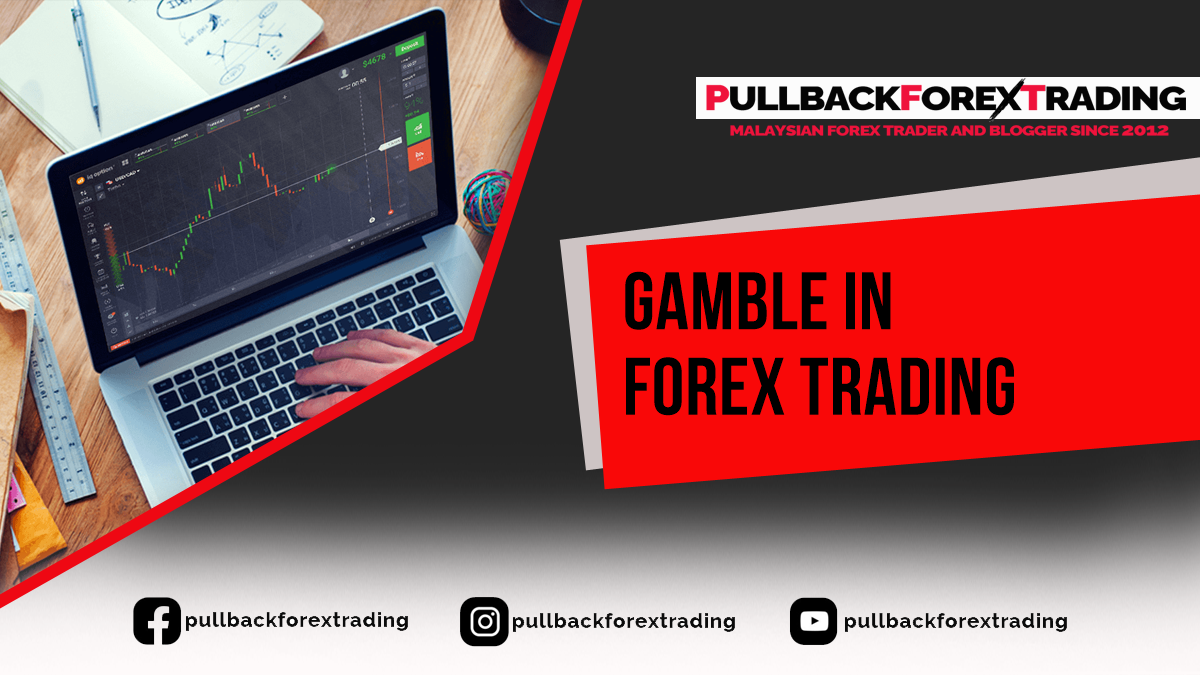
Is Forex Trading Just Legalized Gambling?
In the world of finance, Forex trading is often touted as a sophisticated way to profit from currency fluctuations. But beneath the surface, does Forex trading share more similarities with gambling than with traditional investing? Let’s explore this provocative question by examining the key behaviors and risks involved in both activities.
The High Stakes of Uncertainty
Both Forex trading and gambling operate in environments of high uncertainty. In gambling, whether it’s poker or sports betting, participants risk significant amounts of money on outcomes that are far from guaranteed. Similarly, Forex traders speculate on the rise and fall of currency pairs, often relying on predictions that can be upended by unpredictable market events. The use of leverage in Forex trading amplifies this risk, much like betting large sums in a game of chance.
Dapatkan update lebih cepat dan pantas melalui telegram kami.
Chasing Losses: A Dangerous Game
One of the most perilous behaviors in gambling is “chasing losses.” Gamblers who lose money often continue betting in an attempt to recover their losses, which usually leads to even greater financial harm. Forex traders can fall into the same trap. After a string of losses, a trader might take on even riskier positions, hoping to recoup what’s been lost. This behavior can lead to a vicious cycle of mounting losses, much like a gambler on a losing streak.
The Psychological Rush
The thrill of gambling is often driven by the anticipation of a win, triggering a rush of dopamine in the brain. This sensation can become addictive, pushing gamblers to continue playing despite the odds. Forex trading can provide a similar rush. The fast-paced nature of the market, combined with the potential for quick gains, can hook traders into making impulsive decisions driven more by emotion than rational analysis. The line between excitement and addiction becomes dangerously blurred.
The Illusion of Control
In gambling, particularly in games like poker, players often believe they have more control over the outcome than they actually do. This “illusion of control” keeps them engaged, even when luck plays a significant role. Forex traders can be similarly misguided. While knowledge and analysis are crucial, the Forex market is influenced by countless unpredictable factors, making it more about chance than skill. Traders who believe they can consistently predict market movements may find themselves relying on luck rather than strategy.
Luck vs. Skill: A Fine Line
Success in gambling often hinges on luck, with skill playing a secondary role. The same can be said for Forex trading. Despite the importance of market analysis, unforeseen events can quickly turn a profitable trade into a loss, making luck a significant factor in trading outcomes. This unpredictability challenges the notion that Forex trading is purely skill-based, aligning it more closely with gambling.
Short-Term Gains Over Long-Term Strategy
Traditional investing is typically focused on long-term growth, but Forex trading is often driven by the pursuit of short-term gains. This short-termism is reminiscent of gambling, where the goal is immediate gratification rather than sustainable growth. Forex traders, much like gamblers, may find themselves chasing quick profits, sometimes at the expense of long-term financial stability.
The Cognitive Traps
Gambling and Forex trading both involve a series of cognitive biases that can lead to irrational decisions. Gamblers may fall victim to the “gambler’s fallacy,” believing that past events influence future outcomes. Similarly, traders might succumb to overconfidence or the “hot-hand fallacy,” assuming that a streak of winning trades will continue. These cognitive traps can cloud judgment and lead to decisions that are more emotional than logical.
Conclusion
While Forex trading is a legitimate financial activity, it shares many characteristics with gambling, especially when approached with a short-term, high-risk mindset. The psychological traps, the thrill of uncertainty, and the pursuit of quick gains make the line between trading and gambling much thinner than many would like to admit. For those venturing into the Forex market, it’s crucial to be aware of these similarities and to approach trading with the same caution that one would exercise at the casino.
ADMIN



